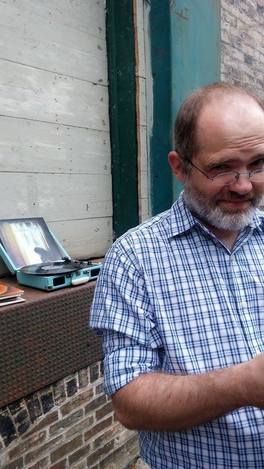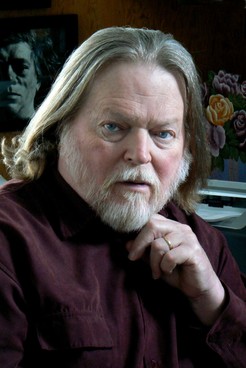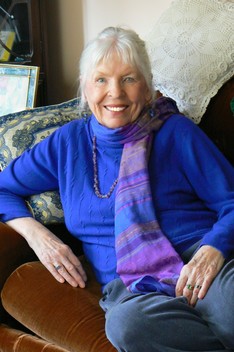
Jason Dickson is a writer and bookseller from London, Ontario. He has three titles published by BookThug. His latest book (co-authored with Vanessa Brown) London Culture: 150 Moments will be published by Biblioasis this June. His writing has appeared in Quill and Quire, Geist, Maine Antiques Digest, Kotaku, Rue Morgue, Canadian Notes and Queries, Fine Books and Collections, and Open Letter. He also co-owns with Vanessa the antiquarian bookstore Brown & Dickson located on Richmond Street.
It is Easy to Get Lost Near the Thames
It is easy to get lost near the Thames
as it sneaks through the tufts of forests
appearing every acre, near farms
with their own wildness, settlement
and entrapments.
but to approach it from the fields,
for a moment, and reach a clearing,
as They never enter the water,
often baptized and clean.
On a moonlit evening, the folk
lining the road with their wagons
watching, as each took their turn
falling in the water, born in the water
learning that the river, not their good farm
is the safest place to be.
Mercury, Deposited
How do they call us?
Is there another light inside of us,
in the blind parts of our body?
A light seen only at edges of light,
where the purple light from the sun spreads out.
It is then that we feel it, rising up,
this second body, with purple eyes;
an unknown shape, turning its head,
from side to side quietly.
This shape that can pull us from our beds,
make us climb out of our windows
and shimmy down the porch banister,
Called by the demons that stand in the street.
The beautiful pale and thin demons,
with branches for fingers, bark for eyes,
that taste like maple syrup.
It is a sixth sense. And we know others have it,
because we see them, in the sky.
We see them flying from their houses.
And we all walk into the fields, together,
to the dark streams, to eat the flesh of fish,
and call out, making love, snapping the bones of animals,
always happy.
We Cannot Pull in the World
And we cannot pull in the weather.
We can’t pull in fog, and rain, and storms.
We can only assemble in a house,
at the edge of town, with our torches,
and stay awake, following the thunder.
We don’t even know if that works.
But still we hear distant animals, eating,
and barely sense something ferocious
doing its dark work in the woods.
What first led you to writing?
My first poem was about my dad and I fishing. Also I was influenced a lot by Dennis Lee's Alligator Pie. Perhaps it starts there.
Describe, if you would, the impetus behind "Mercury, Deposited".
Not sure exactly. I just know that I wanted to write a poem about these sweet small town people leaving their homes at night to visit a Sabbath. That they see themselves do it and poetically write about it ups the horror for me. Calm people talking about scary things is scary and mesmerizing.
The narrators of both "It is Easy to Get Lost Near the Thames" and "We Cannot Pull the World" seem to long for a former era of naïvety and mystery, perhaps for a London long gone. Is this near your experience of London? And, are historians necessarily plagued (or comforted) by a sense of nostalgia?
I think so. I hear it a lot in the shop. Weren't things so much better a long time ago? It's false, of course, although I feel it too. This series of poems is partly about my own family in Middlesex County and the record shows that things were definitely not easier for them back in the day. Perhaps there is something tragic about looking back for solace when life is tough. I think it is a bad idea, of course. But I do it. It seems like a very natural thing to do.
You've written that one thing you like a lot "is a character who has come to the edge of their ability to explain things." Would you offer a few words about how this interest informs your writing?
These days I like ordinary language, and an ordinary sense of the world, challenged to break open and reach for other means of understanding things. In these poems it is folks from London and Thorndale, Ontario facing some extraordinary events. Demons and ghosts. In their case they write poems, not all of them good, but all of them touching I hope in their earnest effort to make their weird lives beautiful. There's something there that interests me.
If you would, offer a few words about the importance of humour and irony in your work and in what you like to read.
Tragedy without humour is violence.
Is humour without tragedy ineffectual?
It's less funny, that's for sure.
What are you reading now?
Vanessa and I just about done final edits on our book on culture in London, Ontario (coming out this summer from Biblioasis) so sadly that's all I have time to read really. Lots of fact-checking. Lots of little things to get wrong. So I'm obsessing.
In your and Vanessa’s research for your forthcoming book, which one or two discoveries about London, Ontario have most surprised you?
Jon Kapelos, the janitor from The Breakfast Club, was from London. Also Honeymoon Suite's breakout hit "New Girl" was written in a kitchen near Fanshawe College.
What ratio of anticipated popularity to personal taste do you employ when acquiring new books at Brown and Dickson?
Hard to say. We're fortunate in that our specialty is mainly things we like ourselves. So when we're looking at a book or collection we are blessed in that anticipated popularity (will someone buy this) is answered by ourselves first (well we'd buy it if we were in a shop). There's exceptions, of course.
If you were to characterize your writing in terms of the tones and textures of musical instruments or colour palettes, which would you choose?
I honestly don't know. I want each poem to ring like a tuning fork, so perhaps musical instruments. But then I want to smear them all with garbage and confusion. So perhaps colour too.
Maybe the art in it is somehow having it both ways.
Have any particular maxims or proverbs stuck with you? If so, what are they, and why’d they stick?
"No one cares." That was said to me when I was young and at a poetry reading. I had just given it my all and this guy said that as I walked off the stage. That stuck. But it was also very helpful.
I also remember an old friend saying that he hated guitar players who always played at a 10. That's all you got, he said? The idea that 10 removed 1-9 has stuck with me too.
I've become very tired trying to write at a maximum capacity for significance. There's something liberating at looking for the beauty of 1-3.
If you were to ask one question of a contemporary writer, what and who would it be?
Wanna make out? Just kidding. I'd only ask you that Kevin.
Am I to take that as tongue-in-cheek?
I refuse to answer.
THE EVENT
WHERE: Mykonos Restaurant at 572 Adelaide St. North, London, Ontario. The restaurant has a large, covered terrace just behind the main restaurant, which comfortably holds 60 poetry lovers. Mediterranean food and drinks are available. Overflow parking is available across the side street and in the large lot one block north, in front of Trad’s Furniture.
WHEN: May 3rd, 2017.
FEATURED POET: Jason Dickson will read at 7pm.
OPEN MIC: Following the featured poet, 15 open mic poets will read until 9:30 at the latest, with an intermission at about 8:00. Each poet has five minutes (which is about two good pages of poetry, but it should be timed at home). Sign up on the reader`s list, which is on the book table at the back. It's first come, first served.
COVER: Pay What You Can (in jar on back table, or use Donate Button on website Donate Page). Donations are our only source of income to cover expenses.
RAFFLE PRIZES: Anyone who donates at the event receives a ticket for a raffle prize, three of which will be picked after the intermission. The prizes consist of poetry books donated by The Ontario Poetry Society.


 RSS Feed
RSS Feed